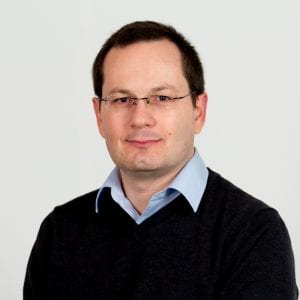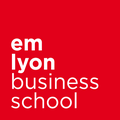The development of uncertainty resulting from scientific and technical innovation is a particular challenge for the public decision-maker. The time when he could decide on a major program and impose it on the people is gone forever. As authority cannot be based on knowledge anymore, a new approach is needed that requires the involvement of the stakeholders to the decision.
Uncertainty has become a strong feature of our environments. Contrary to what might have been thought a few decades or even centuries ago, the development of science and technology has not brought with it more certainties. The vision of Descartes and Laplace of the world as a machine whose secrets would soon be discovered has never seemed so remote. On the contrary, and in a way that may seem paradoxical, progress has led to more uncertainties and to the feeling that what is unknown is larger than what is known. Whether we think of controversies about global warming, nuclear energy or GMOs, we are far from the rational model, which assumes that the more we know about the environment, the less uncertainty there is.
This development of uncertainty related to scientific and technical innovation is a particular challenge for the public decision-maker. There was a time, especially in France, where this decision maker was King. The incarnation of the positivist power dreamed about by Auguste Comte, exercised by the best and the brightest, the State took the long term view, or so we were told, and decided alone the launch, for example, of the nuclear program or the TGV high-speed train.
Two developments now undermine the power of the public expert. On the one hand is the increasing complexity of decisions. The development of science and technology makes it increasingly difficult for experts to know about all aspects of an issue. Expert knowledge, often acquired over many years, rapidly becomes obsolete in a time of disruptions. In addition, many areas are uncertain. For instance, scientists are divided on climate change or quantitative easing, among other examples. Decisions must be made on projects whose consequences will be felt for decades, which nobody can predict, no matter the expertise. Many of the propositions in these areas are simply undecidable. No additional information would solve the problem. With these complex questions, one thus touches the limits of the Cartesian logic of decision making, which assumes perfect information and rational expectations and anticipation; On the contrary, things must be decided with very little information on the consequences of the decisions; expertise is therefore largely insufficient if not irrelevant. The sociologists Callon, Lascoumes and Barthe note in their work on uncertainty that there are three particular difficulties with these situations: first, the list of options to choose from is rarely clear. Some are easily identified, but others are ignored, more or less voluntarily. It takes a specific job to make other possible options emerge that can be better. Second, the conditions under which each option may work. In particular, the components of the “system” in which it will function, are not clear. Third, the interactions between these components are not clear either. A solution may work under certain conditions, but whether or not these conditions will be met is unknown at the time of the decision.
The second development which undermines the power of the public expert is the fact that the general public, and specifically the individuals concerned by decisions, are better educated and better informed than previous generations. As a result, they now have their own expertise or counter-expertise (especially with the Internet) and are no longer ready to accept the verdict of the expert without dispute. The experts’ power, which that traditionally derive from their knowledge, and from the ignorance of others, is obviously undermined. They now have to negotiate with others. A good example is the determined action of parents of children with myopathy who have forced research to become interested in this previously ignored disease and have become active stakeholders in its process.
Science and technology are therefore no longer manageable by our existing political institutions, since these historically derive their authority from an expertise that is no longer relevant, and have been designed to impose their decisions without discussion, which nobody accepts anymore. Therefore, one must first accept that experts’ knowledge is no longer the only legitimate one. Above all, we must accept that these major questions are not only technical problems solvable by calculating experts and optimizers. Such questions always have political, social and ethical dimensions. To ignore this evolution of things is to expose oneself to hostile reactions which can be very strong and ruin the best strategy. This is what happened to the Monsanto group who thought the introduction of its GMO products in purely technical terms and completely failed to anticipate the strong opposition generated by its products.

I am the expert, let me make the decision (source: Wikipedia)
We thus witness the collapse of what Callon, Lascoumes and Barthe call the “Alexander model” of decision-making, when the expert draws his sword and slashes the Gordian knot of the complex problem. The male warlike assurance must now give way not to inaction, but to prudent action, the only one that is possible in situations of extreme uncertainty. Above all, this action cannot take place without involving the stakeholders. Indeed, if the decision on uncertainty can no longer be based on the objective criteria of predictive knowledge and calculation because the questions are undecidable (as a result of uncertainty), it can only be taken on subjective criteria, i.e. by agreeing with others, on the basis of values at least as much as on the basis of facts. In short, the issue is no longer “who is right?”, because this can’t be decided, but “what can we agree on that is reasonable, given the unknowns, to move forward?”. In addition, a decision is more likely to be implemented by people if they have been involved in the decision process.
This is what Callon, Lascoumes and Barthe call “technical democracy”, which means involving stakeholders: patients for medical decisions, local residents and farmers for the processing of nuclear waste, and so on. Stakeholders are thus associated with the decision in a co-determination of the future. For the experts it is a revolution, and like all revolutions, it is a difficult course to cross. No one happily experiences a diminution of their power.
Technical democracy must not be afraid of controversy. On the contrary, Callon, Lascoumes and Barthe believe that controversies represent an appropriate response to the increasing uncertainties created by science and technology. Of course, the approach is fraught with dangers. One of them is to value all opinions, however baseless. Welcome to the world of fake news. There is a fine line between enlightened discussion and paralysis and dangerous paths. The controversy about vaccines is a good illustration of technical democracy gone bad so the question of who, ultimately, drives the governance of technical democracy is crucial.
Technical democracy is also a method, a response based on the organization of experiments and collective learning. Indeed, if one can not know beforehand, one must do. In doing so, prudence resulting from lack of knowledge should not to lead to inaction, but to experimentation, that is to say, to action.
In the idea of technical democracy there are two important notions that we also find in entrepreneurship: the commitment of stakeholders in the project to co-create the future in a situation of uncertainty, and the focus on creative action rather than a priori calculation. So perhaps in a way, a way to develop technical democracy is for public experts to act more entrepreneurially and become co-creators of the future.
Read this article and many more on Philippe Silberzahn’s blog.

I am a professor of entrepreneurship, strategy and innovation at emlyon business school and an associate researcher at the Ecole Polytechnic, where I received my PhD. My work focuses on the way in which organisations manage complex and radically uncertain situations both from an entrepreneurial and a managerial angle. I regularly speak on these issues for companies at conferences, seminars or as a consultant. My work is backed up by over twenty years of experience in the industry as an entrepreneur and company director.
I created the first ever MOOC (an introduction to entrepreneurship) in France, focused on effectuation. I am also the creator of the MOOC “IDEA, an introduction to design thinking”. Passionate about entrepreneurship, I am a member of the editorial committee of the journal “Revue Entreprendre et Innover“.
More information on Philippe Silberzahn:
• His CV online
• His blog
• His Academia Page
Plus d’informations sur Philippe Silberzahn :
• Son CV en ligne
• Son blog
• Son profil Academia
Further readings…
- Silberzahn, P. (2017). Bienvenue en incertitude : Principes d’action pour un monde de surprises. Natura Rerum, 285 p.
Read abstract online - Callon, M., Lascoumes, P., Barthe, Y., Burchell, G. (trad.). (2011). Acting in an Uncertain World: An Essay on Technical Democracy. MIT Press, 298 p.
Read abstract online



Recent Comments